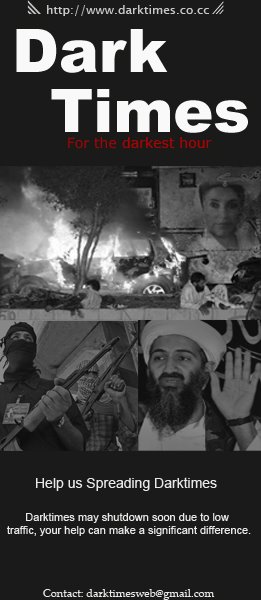Sunday, December 16, 2007

ISLAMABAD, Pakistan (AP) — President Pervez Musharraf has tightened his control over Pakistan's nuclear weapons, anchoring in law a commission responsible for overseeing the nuclear arsenal and preventing further proliferation.
Opposition leaders said Saturday the move gives Musharraf unwarranted powers that they will try to take away from him after Pakistan's fraught parliamentary elections on Jan. 8.
Musharraf on Friday issued an ordinance that gives a firmer legal footing to the National Command Authority, or NCA, the oversight commission which includes top civilian and military officials.
Chaired by Musharraf, the NCA has been in place since he created it by executive order seven years ago. But only with the ordinance, do the commission's powers become enshrined in law.
The ordinance reinforces the NCA's "complete command and control" over all aspects of the nuclear program and grants the chairman "all the powers and functions of the authority."
The ordinance takes immediate effect, though parliament may choose to review it.
Talat Masood, a military analyst and retired general, said the ordinance gave the NCA considerable new power to control the activities of current and former employees of the nuclear program. The ordinance says anyone breaching national security can be punished with a jail term of up to 25 years.
"It has become much more independent now and autonomous," Masood said.
Spokesmen for opposition leaders Benazir Bhutto and Nawaz Sharif denounced the change as a bid to keep nuclear control in Musharraf's hands and said they hoped lawmakers would put the next prime minister in charge of defense matters including oversight of nuclear weapons.
Farhatullah Babar, a spokesman for Bhutto, said the NCA ordinance showed Musharraf "grabbing more and more power."
Bhutto and Sharif have argued in their manifestos for next month's election that nuclear command and control should be overseen by the cabinet's defense committee, chaired by the prime minister.
"The prime minister is answerable before the parliament, so you have some accountability," said Ahsan Iqbal, a spokesman for Sharif, who was ousted by Musharraf in a 1999 coup. "But with the president, there is no accountability."
Iqbal accused Musharraf of a ruse to shore up Western support by reminding them of speculation about whether Pakistan's nuclear weapons could ever fall into the hands of Islamic radicals. In the past, Pakistan's nuclear secrets have been leaked to Iran, North Korea and Libya.
"The real issue is not nonproliferation. That is already very secure. The real issue for Pakistan is rule of law," Iqbal said.
The maneuver comes amid uncertainty about the country's political stability triggered by Musharraf's monthslong confrontation with the opposition and the judiciary against the backdrop of rising Islamic militancy.
Army spokesman Maj. Gen. Waheed Arshad said the government wanted to put the NCA on a firm legal footing before the parliamentary elections.
"There is a transition in process and the country is returning to full democracy, so whatever things were left to be done are being done," Arshad said.
Arshad insisted that the ordinance changed nothing about how the body would function.
Presidential spokesman Rashid Qureshi did not return calls seeking an explanation of Musharraf's action.
Musharraf set up the NCA in 2000 in the wake of his 1999 coup and two years after Pakistan detonated several atomic devices to establish itself as the Islamic world's only declared nuclear power.
It was created at a time of mounting suspicions about the activities of Abdul Qadeer Khan, the top Pakistani scientist who was exposed in 2004 as the head of an international black market in nuclear technology.
U.S. officials have praised Pakistan's efforts to ensure there is no repeat of Khan's proliferation, which stretched back to the late 1980s, though experts say the full extent of his activities remains unclear.
Pakistani officials remain highly sensitive to suggestions that the country's nuclear weapons — its key defense against archrival India and a source of great national pride — are not under firm control, and that it might need help to protect them.
The top U.S. military officer, chairman of the Joint Chiefs of Staff Adm. Mike McMullen, said last month there was no sign that political turmoil in Pakistan had undermined the security of its nuclear arsenal.
Pakistani authorities have issued a string of strongly worded statements since two American academics published an article in the New York Times last month suggesting U.S. forces could enter Pakistan to prevent Islamic militants from getting their hands on a nuclear device in the case of grave instability.
The Pakistan army said the NCA had taken note during a meeting chaired by Musharraf on Friday of a "hostile campaign" in the international media.
"While reiterating that the security of Pakistan's nuclear assets was foolproof, it advised against creating irresponsible alarm. Pakistan (is) capable of defending its interests and cautioned those contemplating misadventures," an army statement said.
Labels: Politics








0 comments:
Post a Comment